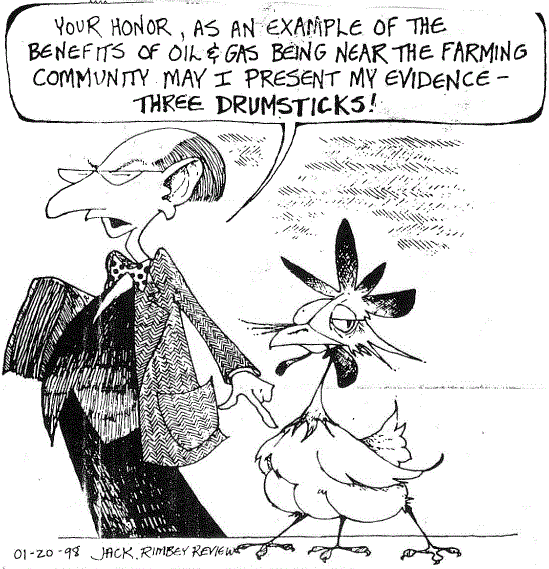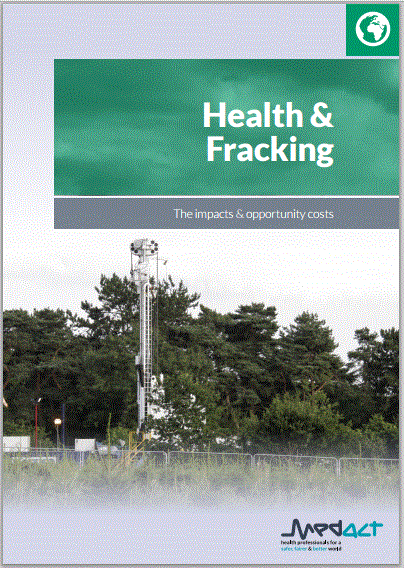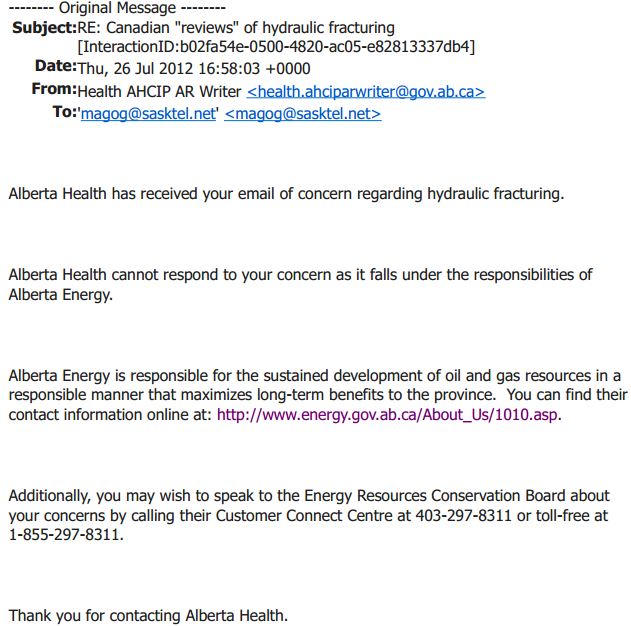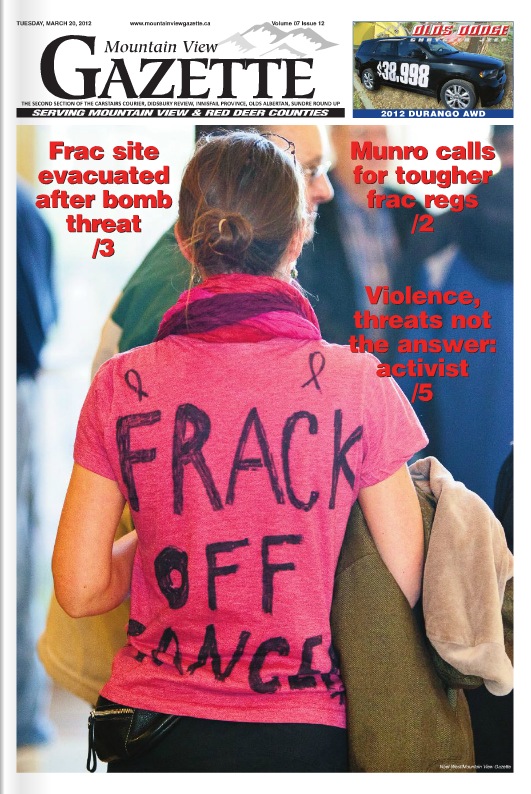Doctors and academics call for ban on ‘inherently risky’ fracking, Letter to BMJ prompted by new report from health charity Medact recommending UK-wide moratorium on fracking for shale gas by Karl Mathiesen, March 30, 2015, The Guardian
Fracking should be banned because of the impact it could have on public health, according to a prominent group of health professionals.
In a letter published by the British Medical Journal on Monday, 20 high-profile doctors, pharmacists and public health academics said the “inherently risky” industry should be prohibited in the UK.
“The arguments against fracking on public health and ecological grounds are overwhelming. There are clear grounds for adopting the precautionary principle and prohibiting fracking,” they said.
The signatories include former chair of the Royal College of General Practitioners, Dr Clare Gerada, chief executive of the Royal Pharmaceutical Society Helen Gordon and former deputy chief medical officer Dr Sheila Adam.
The letter was prompted by a report from health charity Medact, to be released on Monday, which recommended a UK-wide moratorium be placed on fracking. Scotland has already imposed a ban on the industry pending the results of a public health impact assessment. The Department of Energy and Climate Change declined to respond to the letter.
Medact director and report co-author Dr David McCoy said fracking potentially exposes communities to leaks of chemicals linked to cancer, birth defects and lung disease. He also raised concerns over noise and air pollution.
… “What we don’t yet have is an adequate and proper study to determine the level of those potential benefits and to weigh them against the potential harms,” said McCoy.
The shale gas industry said all fracking sites are subject to an environmental impact assessment before receiving planning consent. CEO of UK Onshore Oil and Gas Ken Cronin said: “Medact’s report fundamentally fails to understand the regulatory system put in place in the UK to cover shale gas exploration.” [Legally immune, Magna Carta violating, “no duty of care” regulators? Failing to enforce? Failing to inspect? Failing to punish? Massive deregulation of the UK regulatory system, conquered by industry’s unenforceable promises of voluntary “best practices?”]
He said Medact had ignored the current regulatory framework being put in place across the UK [MASSIVE DEREGULATION!] and failed to acknowledge “warnings by recognised experts of the dangers of incorrectly and inappropriately applying experiences from other countries to the UK”.
Cronin said Medact’s findings were contradictory to a 2014 report by Public Health England, which found the risks of public exposure to dangerous chemicals was “low if the operations are properly run and regulated”. [Is Public Health England a cousin of Alberta Health, BC Health and Intrinsik? Who assesses the adverse impacts of massive deregulation?]
“I am questioning that,” said McCoy. “[Firstly] there is evidence of regulatory capacity being eroded as a result of staff and budget cuts. The second is that it does appear as though there’s been so much pressure to promote fracking that there seems to be a readiness to compromise on safety in order to make fracking commercially viable.”
… Medact’s report said “regulatory gaps and uncertainties” existed that could expose the public to hazards. It noted that in the densely-populated UK, fracking would necessarily take place in and around communities. [Emphasis added]
Public Health England’s draft report on shale gas extraction
BMJ 2014; 348 doi: http://dx.doi.org/10.1136/bmj.g2728 (Published 17 April 2014)
Cite this as: BMJ 2014;348:g2728
Dear Editor,
We write as concerned health professionals who seek to draw the public’s attention to the dangers associated with hydraulic fracturing (fracking) and shale gas extraction in the United Kingdom, as highlighted by a recent report published by Medact.
Fracking is an inherently risky activity that produces hazardous levels of air and water pollution that can have adverse impacts on health. The heavy traffic, noise and odour that accompanies fracking, as well as the socially disruptive effects of temporary ‘boomtowns’ and the spoilage of the natural environment are additional health hazards.
Such risks would be magnified in the UK where fracking is projected to take place in closer proximity to more densely populated communities; and where there are concerns about the effectiveness of the regulatory system for onshore gas extraction.
But in addition to this, shale gas is not a clean source of energy. Methane is a potent greenhouse gas in its own right, and when burnt, produces carbon dioxide. Shale gas extraction would undermine our commitment to reducing greenhouse gas emissions and be incompatible with global efforts to prevent global warming from exceeding two degrees centigrade.
The arguments against fracking on public health and ecological grounds are overwhelming. There are clear grounds for adopting the precautionary principle and prohibiting fracking.
Yours sincerely,
Dr Robin Stott, Co-Chair, Climate and Health Council
Professor Sue Atkinson CBE, Co-Chair, Climate and Health Counci
Professor Hugh Montgomery, UCL
Professor Maya Rao OBE
Professor Martin McKee, LSHTM
Dr Clare Gerada, GP and former Chair of RGCP
Dr Christopher Birt, University of Liverpool and Christie Hospital, Manchester
Professor John Yudkin, Emeritus Professor of Medicine, UCL
Dr Sheila Adam, former Deputy Chief Medical Officer
Professor Klim McPherson, Chair of the UK Health Forum
Dr John Middleton, Vice President UKFPH
Professor Alan Maryon-Davis, KCL
Helen Gordon, Chief Executive, RPS
Dr Frank Boulton, Medact and Southampton University
Dr Sarah Walpole, Academic Clinical Fellow
Professor Allyson Pollock, QMUL
Dr Julie Hotchkiss, Acting Director of Public Health at City of a York Council
Professor Jennie Popay, Lancaster University
Competing interests: No competing interests
New report: Health & Fracking: the impacts & opportunity costs Press Release by Medact, March 30, 2015
Health professionals call for an immediate moratorium on fracking due to serious risks to public health
Medact’s new report, Health & Fracking: the impacts & opportunity costs, concludes that hydraulic fracturing for shale gas (‘fracking’) poses significant risks to public health and calls for an immediate moratorium to allow time for a full and comprehensive health and environmental impact assessment (HIA) to be completed.
Health & Fracking: the impacts and opportunity costs concludes that fracking generates numerous public health risks, including:
- Potential health hazards associated with air pollution and water contamination: these include toxins that are linked to increased risks of cancer, birth defects and lung disease;
- Negative health impacts associated with noise, traffic, spoilage of the natural environment, and local social and economic disruption.
- The indirect effects of climate change produced by greenhouse gas emissions.
The report has been supported by a letter, which calls for shale gas development to be put on hold, published in the British Medical Journal, signed by Medact and the Climate and Health Council and senior health professionals.
The report states that the precise level of risk to human health cannot be calculated and emphasises that intensive levels of fracking activity could pose additional risks in the UK when compared to experiences elsewhere because of the proximity and size of surrounding populations. In addition, the report describes how the regulatory system for fracking is currently incomplete and inadequately robust.
Dr David McCoy, Director of Medact said:
“Today, Medact, alongside a wider group of health professionals, has called for a moratorium on fracking because of the serious risks it poses to public health. Fracking has already been suspended in Wales and Scotland because of health and climate risks and New York State has banned fracking because of the ‘significant health risks’.”
The report highlights the limitations of Public Health England’s report on fracking, including the fact that it was narrow in scope and failed to critically assess the adequacy and reliability of the regulatory system.
Working with various experts in energy policy and climate change, Medact’s report also describes how shale gas produces a level of GHG emissions that is incompatible with the UK’s commitments to address climate change.
Dr Patrick Saunders, a co-author of the report said:
“Climate change is the biggest long-term threat to global public health. Suspending fracking now will also allow time for the independent UK Committee on Climate Change to complete its next assessment of the climate change risks.”
NOTES:
A copy of the Medact report is available here: http://www.medact.org/wp-content/uploads/2015/03/medact_fracking-report_WEB3.pdf
The British Medical Journal letter can be found here http://www.bmj.com/content/348/bmj.g2728/rr . The letter states that:
“The arguments against fracking on public health and ecological grounds are overwhelming. There are clear grounds for adopting the precautionary principle and prohibiting fracking.”
The letter is signed by several senior health professionals including Professor Hugh Montgomery (UCL), Professor Sue Atkinson (Co-chair Climate and Health Council), Dr Clare Gerada (former chair of the RCGP) and Dr SheilaAdams (former Deputy Chief Medical Officer) amongst others.
Details of the medical affects of the chemicals used in fracking can be found in our supplementary paper:
‘Additional information about potential pollutants and toxins’
Details of the Wales moratorium: http://www.walesonline.co.uk/news/wales-news/end-fracking-wales-welsh-government-8638802
Details of the Scotland moratorium: http://news.scotland.gov.uk/News/Moratorium-called-on-fracking-1555.aspx
Link to the New York State report on the health impacts of fracking is here:http://www.health.ny.gov/press/reports/docs/high_volume_hydraulic_fracturing.pdf
Details of the Committee on Climate Change assessment of the climate impacts of fracking: http://www.theccc.org.uk/publication/letter-response-to-the-environmental-audit-committee/
Medact’s report: Health and Fracking, The impacts & opportunity costs
Compare to report by Intrinsik for BC Health in Canada:
Compare to Alberta Health in Canada:
Compare to Health Canada:
[Refer also to this cartoon published in the Alberta local paper, Rimbey Review, in 1998:

Mother of three, Kimberley Mildenstein, attends frac impacts presentation by Councilor Paddy Munro to Mountain View County Council, March 2012
For more information: FrackingCanada No Duty of Care
Thank you Kimberly Mildenstein for your courageous stand
in heavily abused, censored and silenced Alberta



